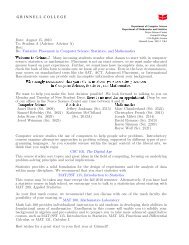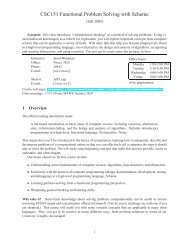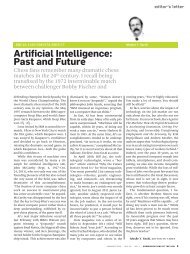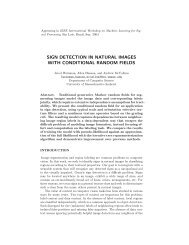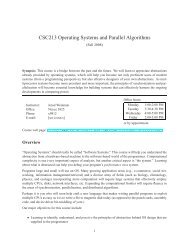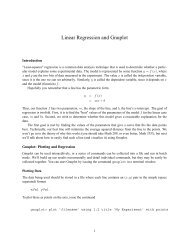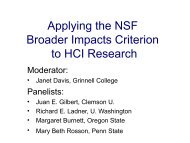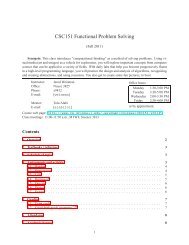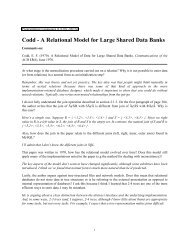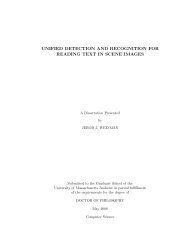Lecture 3
Lecture 3
Lecture 3
You also want an ePaper? Increase the reach of your titles
YUMPU automatically turns print PDFs into web optimized ePapers that Google loves.
Proof (not effective!)<br />
If L is a regular language and S is an arbitrary set then L/S is regular<br />
Let M = (Q,Σ,δ,q0,F) be a DFA for L<br />
There is a DFA M’= (Q,Σ,δ,q0,F’) that accepts L/S<br />
M’ behaves just like M, but F’ consists of just<br />
those states for which ∃y∊S such that δ(q,y)∊F<br />
I don’t (and cannot in general) know what F’ is<br />
but I know it exists!<br />
Friday, February 8, 13



